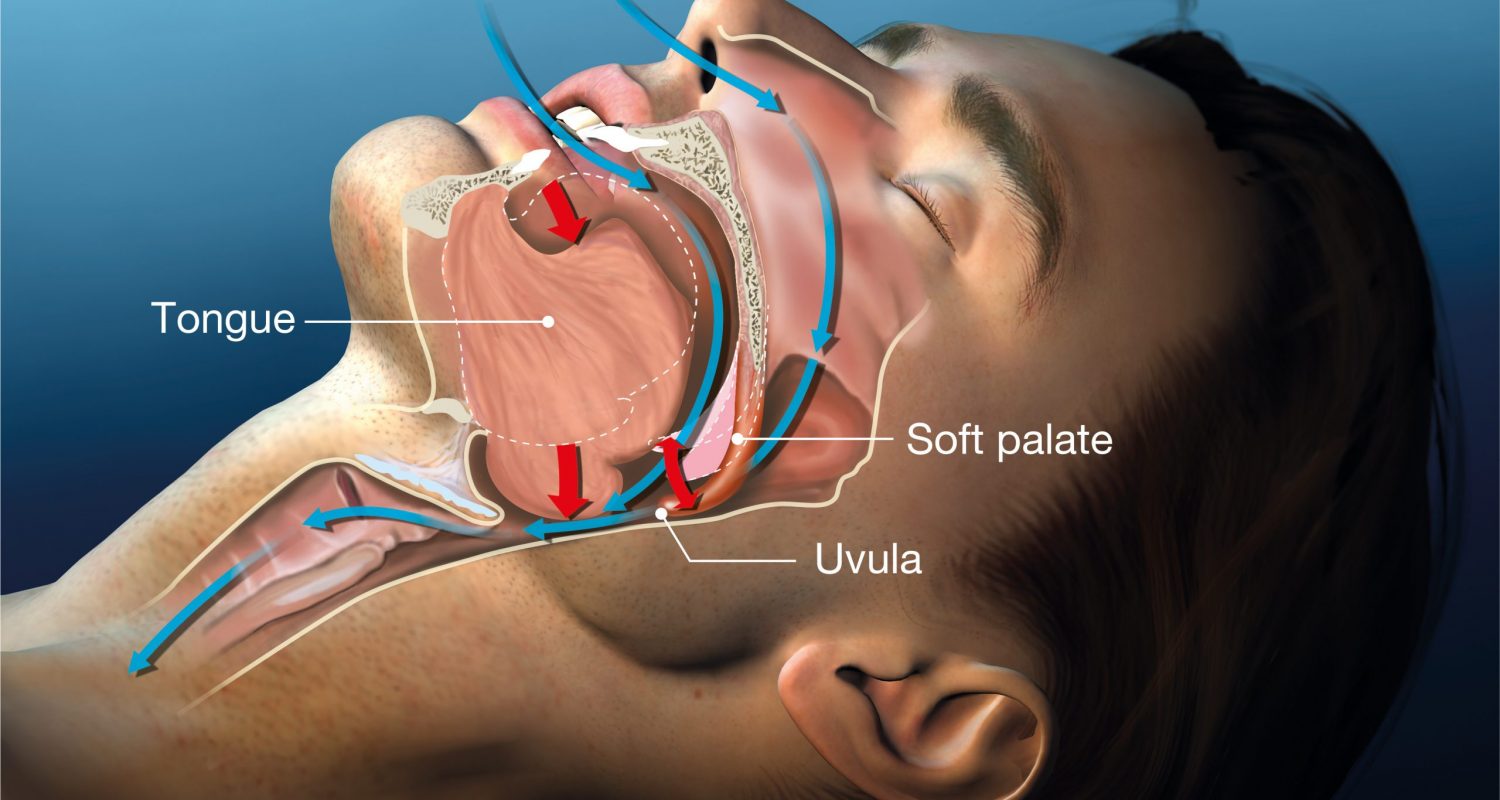Do you toss and turn all night? Or sometimes wake up suddenly feeling like you’re choking or can’t breathe?
You wake up in the morning and find that your partner is sleeping in another room because your snoring was so loud it sounded like a freight train. You might have a condition called sleep apnea.
What is Sleep Apnea?
Sleep apnea is a disorder where a person’s breathing repeatedly stops and starts during sleep.
These pauses in breathing can last from a few seconds to minutes, often occurring many times throughout the night.
This disrupts sleep and reduces oxygen supply to the body. The most common type of sleep apnea is obstructive sleep apnea (OSA), where throat muscles relax and block the airway. Many obese patients who visit us have OSA. Medical research shows that a 10% weight increase is linked to a sixfold rise in risk.
Living with Obstructive Sleep Apnea
Here’s how people with obstructive sleep apnea describe their experience:
“My partner says I snore so loudly, it sounds like a freight train. They often have to sleep in another room.”
“Sometimes I wake up suddenly feeling like I’m choking or can’t breathe.”
“I’m exhausted all the time. Even after sleeping for 8 hours, I feel like I haven’t slept at all. I struggle to stay awake at work and have almost dozed off while driving.”
“I wake up most mornings with a dull headache that usually goes away after a few hours.”
“I’m irritable all the time. Little things that never used to bother me now set me off.”
“I toss and turn all night. Sometimes I wake up multiple times and have trouble falling back asleep.”
“My doctor says my blood pressure is high, even though I’ve never had issues with it before.”
How Obesity Increases the Risk and Severity of Sleep Apnea
Excess weight creates extra tissue that narrows the airway, especially around the neck and throat, making it more likely to become blocked during sleep.
In obese people, fat builds up in the upper airway, making it smaller and more prone to collapse.
Pressure on the chest wall from excess weight can make it harder for the lungs to expand, affecting breathing during sleep.
Obesity can also change hormone levels, affecting breathing control and sleep.
It’s a vicious cycle: sleep apnea leads to poor sleep and daytime fatigue, causing less exercise and more eating, which leads to weight gain, worsening obesity, and sleep apnea.
Health Impacts of Untreated Sleep Apnea
OSA can harm the body, especially if left untreated. It affects the heart, lungs, hormones, nerves, and gut.
Breathing stops, oxygen levels drop, and the brain signals blood vessels to tighten, increasing blood pressure to boost oxygen flow to the heart and brain.
These oxygen drops and blood pressure spikes stress the heart, damage blood vessels, and promote plaque buildup, raising the risk of heart attacks and strokes.
Repeated breathing pauses cause chronically low blood oxygen levels (hypoxemia).
Poor sleep affects hormone production and regulation, including growth hormone, cortisol, and leptin.
Lack of good sleep and intermittent hypoxia can damage brain cells, impairing memory and thinking.
Sleep apnea also causes insulin resistance and hormonal changes that promote fat buildup in the liver.
Breaking the Cycle with Bariatric Surgery
Weight loss is a key factor in treating obstructive sleep apnea, and bariatric surgery is becoming an important treatment option for patients.
Studies show over 75% of patients see an improvement in their sleep apnea post-bariatric surgery, often within weeks.
7 Ways Bariatric Surgery Helps Treat Sleep Apnea
Significant Weight Loss: As a person loses excess weight, especially around the neck and upper airway, it reduces the physical blockage that causes sleep apnea.
Reduced Neck Fat: Less neck fat cuts the soft tissue that can block the airway during sleep.
Reduced Belly Fat: Less belly fat reduces pressure on the diaphragm, making it easier to breathe, especially when lying down.
Improved Lung Function: Weight loss increases lung size and helps reduce sleep apnea severity.
Hormonal Changes: Bariatric surgery changes hormone levels that regulate appetite and metabolism, indirectly affecting sleep apnea.
Reduced Inflammation: Weight loss following surgery can reduce chronic low-grade inflammation that can cause sleep apnea.
Better Glucose Control: Improved glucose control after surgery may benefit the nerves that control upper airway muscles.
Benefits of Bariatric Surgery Beyond Sleep Apnea
Bariatric surgery can treat sleep apnea and upgrade your entire body. Sleeping better means less heart risk, lower blood pressure, and more restful, focused, and happy feelings. It also means more energy and much more.
Dr. Shashank Shah is one of the best weight loss surgeons in India. He has performed over 10,000 bariatric procedures. Take a step towards better health today and schedule your consultation.


